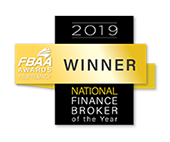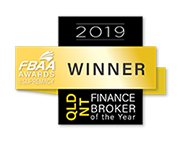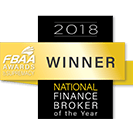Have you bitten off more than you can chew in terms of debt and are now faced with thousands of dollars in debt that you have no idea how you will pay off? Or are you always scrambling to make repayments at the last minute because you have forgotten which debt is due when?
Then, you may want to consider debt consolidation. In this article, we will share with you everything you need to know about consolidating your debts into your home loan with the help of a mortgage broker in Brisbane. We will walk you through all the exact steps involved with consolidating debt in your home loan.
Let’s dive in.
What Is Debt Consolidation?
Debt consolidation is the process of combining your debts into one single debt. Some people may consolidate their loans into an existing personal loan or credit card balance, but the best way is to consolidate it into your home loan. You transfer the outstanding balances of debts with higher interest rates from different lenders into the total balance of your mortgage repayment. Rather than paying off different loans separately, you can consolidate them into one monthly repayment.
Why Should I Consolidate Debt?
There are many reasons why you should consider consolidating your debts:
- you are finding it difficult to track what repayments are due and when. This usually happens if you have many debts from different providers.
- you are also struggling to keep your debts under control
- you are are falling behind in payments
In the cases above, consolidating your debts into one can help you regain control of your finances by making it easier to control your spending and borrowing habits.
Read more: How to pay off your home loan faster.

What Debts Can I Consolidate?
You can consolidate the following debts into your home loan:
- Credit card loans
- Personal loans
- Car loans
- Tax debts
- AfterPay and similar buy now pay later services
Generally, the best debts to consolidate into your home loan are unsecured, high-interest debts. Combining these debts into your home loan will lower the interest rate you are paying on these debts.
Read more: Positive credit reporting.
How Much Debt Can I Consolidate Into My Home Loan?
How much debt you can consolidate into your home loan depends on the type of lender you are using and how much equity is available in your home. With some lenders, you can consolidate up to 5 debts valued between $50,000 and $100,000.
On the other hand, non-bank lenders can offer unlimited debt consolidation on the condition that you have enough equity in your home. When deciding how much debt to consolidate into your home loan, it is important to remember that debt consolidation is supposed to put you in a better financial position.
For example, it is not financially prudent to consolidate your debts and end up with Lenders Mortgage Insurance because your LVR is now over 80%. This is why it is important to talk to an expert mortgage broker before consolidating debts into your home loan.

How to increase equity for debt consolidation:
There are a few quick and easy tricks to try and increase the equity in your property:
The first is getting a licensed real estate agent out to do an appraisal. Generally, it’s a good idea to get one or two appraisals in which they’ll show you properties in the area that have recently sold. If these appraisals are above what the bank valuations are, that’s great news. You can then call your broker and ask them to arrange one or two valuations with differing banks and provide these appraisals to the valuers. They can use those comparative sales to increase the value of your property. Realistically, the best way we find to get more equity on your property is just getting other valuations.
The good thing is these days, banks will do different forms of valuations, so in some cases, their electronic valuations might end up being more than what a full valuation is with another bank. It’s all getting a bit technical, but once you work with a broker, You might be able to get five different valuations.
We had a client who bought a house a couple of years ago for $700,000. We got one bank valuation at $800,000, the existing bank at $720,000, and another at $740,000 – that’s over 10% of the property’s value from what they originally bought between the banks. So, having different valuations can make all the difference if you’re consolidating your debt.
Some lenders are now restricting debt consolidation!
We have noticed that some lenders are restricting debt consolidation so that they keep it separate from the home loan. So, in an example where you’ve got a $400,000 home loan and $50,000 in credit card debt, they won’t let you combine it and do a $450,000 home loan. They’ll make you keep it separate. They might give you a five-year term to finish paying off the credit card debt.
How Do I Qualify For A Debt Consolidation Loan?
Debt consolidation loans are not available to everyone, but if you meet the following criteria, you may qualify for a debt consolidation loan:
- The home is owner-occupied.
- Your mortgage repayments have been on time for at least 6 consecutive months.
- You have not missed any repayments on your credit card and personal loans.
- You are in a good financial position and can repay the loan.
- You have stable employment.
- You have a good credit score.
Some lenders might be lenient towards missed repayments if they were caused by something major like a divorce, bereavement or sickness. Your mortgage broker can explain this to the lenders.
Non-bank lenders may consider consolidating your bank even if your credit history is not so good, but you may have to pay higher interest rates.
Read more: 27 ways to get unconditional approval.

What Documents Are Required?
The documents required for debt consolidation are similar to those required for a regular home loan application, with some extra documentation. The list includes, but is not limited to:
- Most recent bank statements—usually for the past 3 months
- Payslip
- Your identification documents
- Current assets and liabilities statement
- PAYG applicants also require:
- Recent group certificate
- Recent tax return
- If you are self-employed, you can qualify for an alt-doc loan.
These requirements are just a guideline. Each lender has different requirements, and your mortgage broker can help you gather and assess the needed documents.
Read more: Maximise your borrowing power.
How Much Can I Borrow?
You need to have enough equity in your property before you can consolidate your debt. Depending on the lender, you can borrow between 75% to 95% LVR.
If your repayments and credit history are flawless, you can borrow up to 95% of the value of your home. Some lenders may allow you to borrow up to 80% LVR if you have made your payments on time in the last 6 months, even if you may have missed some payments in the past.
Some banks are more flexible than others and may allow you to borrow up to 75% LVR even with a really bad credit history.

Read more: What is Loan to Value Ratio?
What Interest Rates Will I Get?
With a debt consolidation loan, you will be eligible for standard home loan interest rates. Some lenders may offer a lower interest rate for refinancing. As we mentioned above, if you have a bad credit history, you may have to use a non-bank lender who may charge you a higher interest rate. The advantage of consolidating is that instead of paying multiple high interest rates on your other loans, you can pay a single lower interest rate for your home loan. Let’s look at an example below.
Type of Debt | Interest Rate | Monthly Interest repayments | Total debt |
Before consolidation | |||
Home loan | 6.85% | $3,995 | $700,000 |
Car loan | 17% | $425 | $30,000 |
Credit card | 21% | $175 | $10,000 |
Total | $4,595 | ||
After consolidation | |||
Home loan | 6.85% | $4,224 | $740,000 |
Total monthly saving: interest before consolidation – interest after consolidation $4,595 – $4,224 = $371 | |||
Read more: Fixed vs Variable Interest rates
How Much Are Fees And Charges For Debt Consolidation?
The fees and charges for debt consolidation can include:
- Application fees
- Valuation fees
- Establishment fees
- Loan services fees
- Early repayment fees if you manage to pay off your mortgage faster
Some banks may waive fees and charges, so talk to your mortgage broker to see if you can get some of the fees and charges waived.
Advantages Of Debt Consolidation
Consolidating your debts into your home loan has many advantages, including:
- You will only have one (lower) interest rate
- You can save money on your monthly interest repayments (as we calculated above)
- Debt management becomes easier
- You can use the savings to pay off your mortgage faster
- You only have to remember the repayment date for one loan
- Consolidating your debts can protect you against the risk of bankruptcy
- You will not have to keep track of different charges and fees for many loans
- You can get access to standard home loan interest rates – or lower.
- Your cash-flow position can improve greatly.

Read more: Barefoot Investor Bank Accounts explained
Disadvantages Of Debt Consolidation
As is the case with everything, debt consolidation has its disadvantages. You must decide whether the advantages outweigh the disadvantages. Here are the disadvantages:
- Home loans are paid over a longer period of time—usually 30 years—so you might end up paying more interest in the long term. You can mitigate this by making extra repayments whenever you can.
- Consolidating debts into your home loan will increase your home loan balance.
- Increasing the home loan balance may increase your LVR, which can ultimately affect your interest rates.
- If your LVR increases to above 80%, you may be required to pay Lenders Mortgage insurance, which can be thousands of dollars.
- Consolidating your debts may reduce any equity you may have gained from paying off your mortgage.
- You may have to pay set-up fees for the new loan.
If you are thinking of consolidating your debts into your home loan, talk to your mortgage broker to find the best way to do it!
BONUS: Frequently Asked Questions
What if I have multiple lenders?
You can still consolidate your loans with one lender, even if you have debts with other lenders. For example, if you have a car loan with Lender A, a personal loan with Lender B and a home loan with Lender C, you can consolidate all those loans into your home loan with Lender C.
Will consolidating my debt improve my credit score?
If you are always on time with your monthly repayments, consolidating your debts can increase your credit score in the long term. The key here is consistency and faithfulness in making your monthly repayments.
Can first-home buyers consolidate debts into their home loans?
If you are a first home buyer and are using a guarantor, you can consolidate your debts into your home loan. A guarantor home loan allows you to borrow up to 105% of the property value. 5% goes towards the costs of buying the property, and the other 5% can go towards consolidating the other debts
The only caveat is that your parents (guarantors) must still be working, and you must have a flawless repayment history on your other debts. Banks are very strict when assessing this loan.
Read more: Guarantor home loans.
Bonus: Good Debt vs Bad Debt

What is good debt, and what is bad debt? The simple way of looking at it is that bad debt will cost you money, whereas good debt will potentially make you money.
Examples of good debt:
- Student loans or HELPS or HECS debt. This is an investment in the future which will help you earn more income in the future.
- Investment or business loan. If you are buying an investment property or starting a business, you are actually going to be making more money from that money,
- Home Loan (Mortgage). This is more of a neutral debt because you are not necessarily going to make money from it, but it is going to stop you from paying rent and potentially build some equity.
Examples of bad debt:
- Car loan. Interest rates are very high, and in about 5 years, the value of the car may be less than half what you bought it for because cars are depreciating assets.
- Personal loan. If you get a personal loan to, say, pay for a holiday, you may spend years and years paying that off because the interest rates can be up to 10% more!
- Credit card debt. This is potentially the worst type of debt because the interest rates are crazy high, and you may end up paying back up to 5 times the price you purchased for.
Bonus: How To Manage Your Debt(s)
Debt consolidation is not a magic potion that can reduce your level of debt. All it does is allow you to manage your repayments easily. Debt consolidation should be done together with a plan to manage your finances.

Here are some tips for managing your debts:
- Change your spending patterns. It’s as simple as not buying what you cannot afford. Distinguishing between wants and needs will help you change your spending patterns.
- Use a budgeting tool. There are plenty of apps that you can use to keep track of your expenses. If not, a regular spreadsheet can do the job just fine.
- Make as many extra repayments as possible to reduce your loan balance.
- Once you have consolidated your debts, close all the credit card accounts. If you continue to use them, you will increase your debt. Some accounts may charge you holding fees even if you are not using the account. So close off all the credit card accounts.
- Speak to a professional. If you are still struggling to manage your debt, you may need to speak to a debt counsellor or financial advisor to help you manage your spending habits.
Next Steps And Consolidating Your Debts
If you’re ready to consolidate your debts, we are here to help you. Our team at Hunter Galloway is here to help you buy a home in Australia.
Unlike other mortgage brokers who are just one-person operations, we have an entire team of experts dedicated to helping make your home loan journey as simple as possible.
If you want to get started, please give us a call on 1300 088 065 or book a free assessment online to see how we can help.







 Start again
Start again










